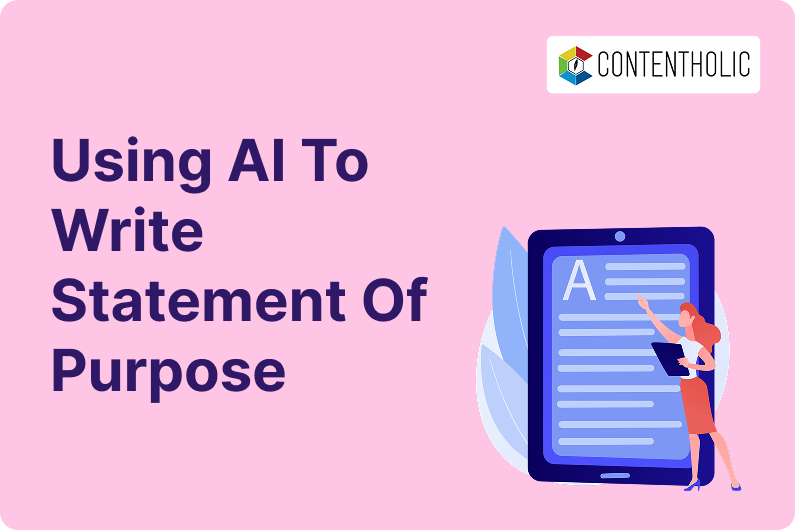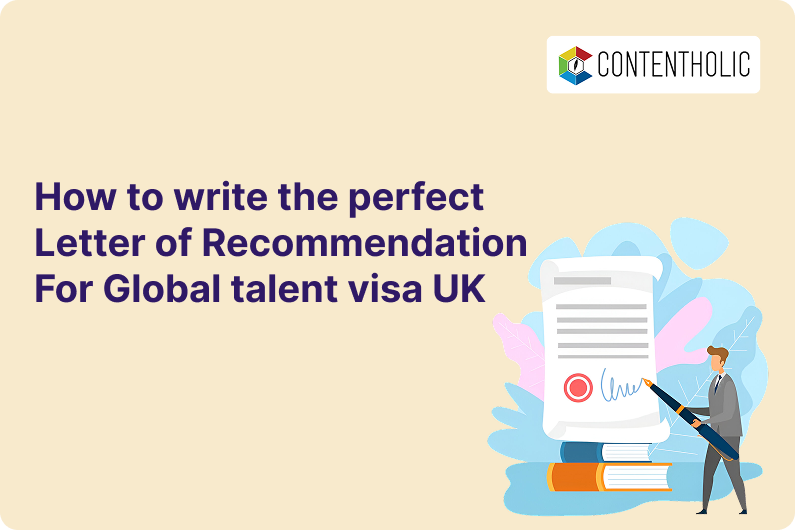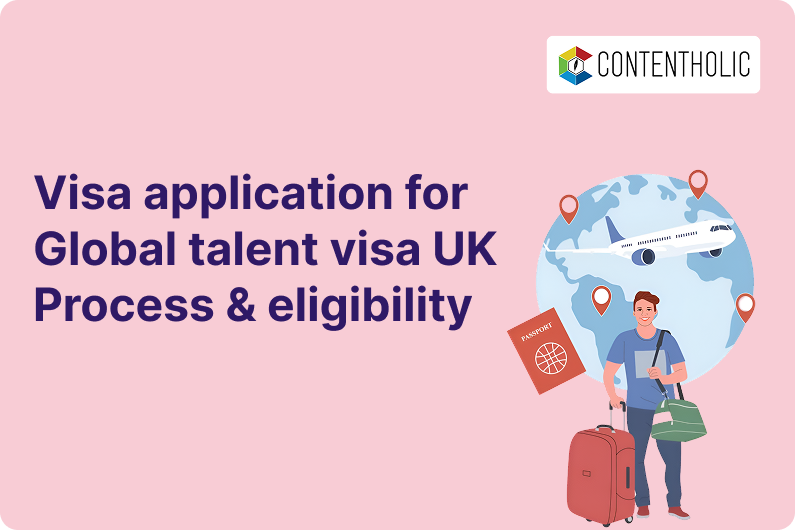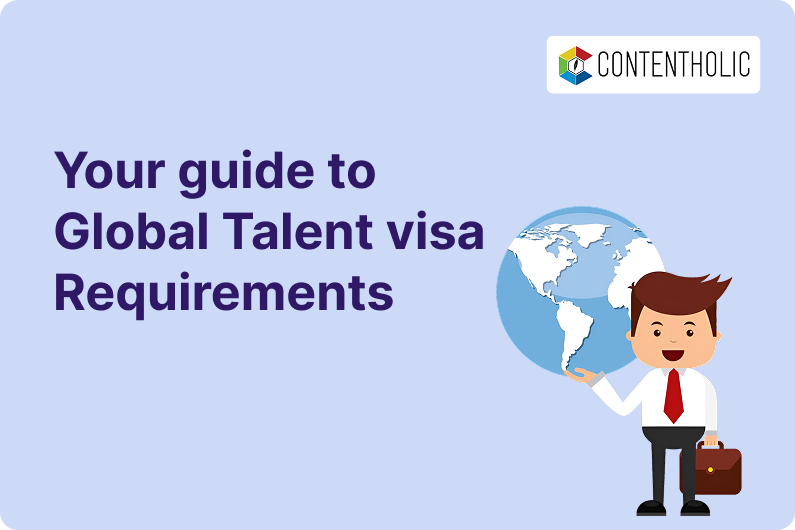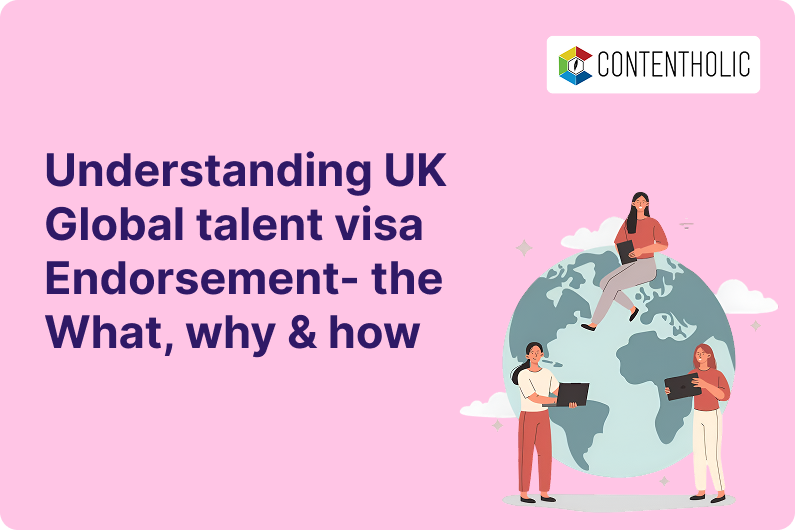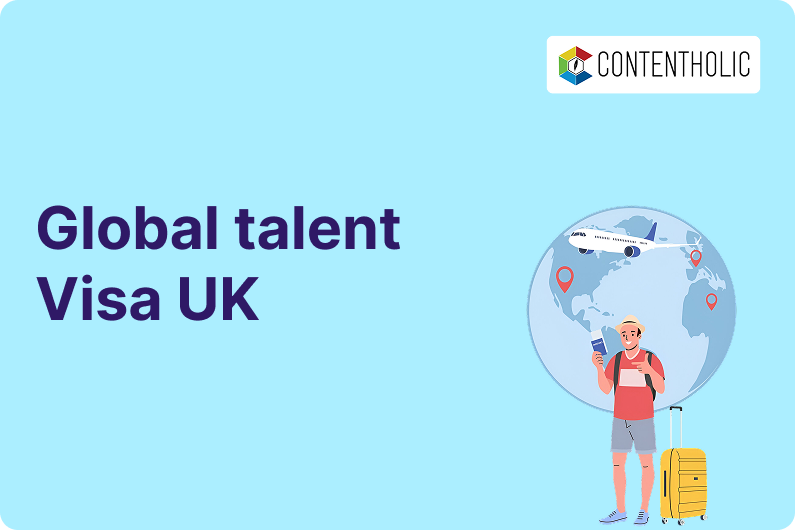Whether you wish to apply for a university, want to visit a country, or apply for a study or work permit, you have to submit a Statement of Purpose (SOP) with all the other documents to get approval for any such things. An SOP can be considered as a document that explains your motivation, achievements, goals, and other relevant information to showcase your intent to the admission committee or visa officials. We live in a digital world, and it seems nobody and no aspect of our lives has been able to escape this reality of today’s. And this digital age has given birth to the Artificial Intelligence (AI).
One of the many ways people use AI is to accomplish their writing tasks including drafting SOPs for academic applications as well as for visa requirements. While the convenience AI provides while writing your SOPs can be enticing, it is imperative to recognize the downside that creates troubles for you by impacting the quality and persuasiveness of your writing. In this blog, we will delve into how heavily relying on AI can turn into a problem more than an advantage and discuss why a more individualized method can be more instrumental.
Lack of Personal Touch
AI does not know about your life and hence will only write the things you have given it as your description. The most likely possibility would be it will use some general words to describe you and give you your SOP in 30 seconds. No matter how many instructions you give it, it will lack your distinctive experiences, aspirations, and most importantly your voice. A personal narrative has depth and individuality which the AI-generated content can hardly achieve. Be it the admission committee or the visa officials, they always look for authenticity in your SOPs, and a formulaic SOP made by AI will fail to resonate with them.
For example, an admission official received five applications for the same program, and all five of them used AI tools to write their SOPs. The official will recognize the same language pattern used and structure followed, and it will look like all five applications might have been written by the same individual, which will make it difficult for the admission committee to differentiate between them. Your personal experiences are what make your SOP the most memorable and compelling.
General Content
There are some existing template that AI use to generate content. As with any application tools, algorithms are also followed by AI text-generating platforms. This leads to the creation of SOPs which look strikingly indistinguishable. This genericity often fails to convey some specific goals or expectations that are very detrimental to your acceptance into a university or approval for a visa. The AI-generated SOP might act as a cookie-cutter which is technically right and ticks all the boxes but won’t stand out in the sea of applications received by the universities or the embassies.
The consequence of submitting an AI-generated SOP is that it will echo the statements made by other applicants and will eventually diminish your uniqueness. Your application will then transform into just another form rather than making the reader invested in your genuine reflection on your ambitions and personality.
Inability to Capture Subtle Differences
No matter how humanized the AI content looks, the bottom line is it is written by a robot which gives an overly refined answer. It often fails to capture the complex human emotions and motivations behind human actions. It might generate grammatically correct sentences, which in certain cases is not true as AI tools are known to sometimes write grammatically and structurally incorrect sentences, but it would lack some nuances in your story which could have made it more persuasive. The motivation behind any human act could be to overcome a personal challenge, influenced by culture, or some other unique experiences that are not possible for AI to articulate effectively, which will make your SOP boring, or uninspired.
For instance, suppose you faced a significant challenge in your academic or personal life and you provide this information as your input, the extent AI will use this information is to mention them and provide just the basic description limited by the information provided by you. But it will grapple to communicate the emotional weight these situations might have in your life. Only you as an applicant or professional SOP writers can imbue your life’s important narratives with the necessary intensity and contemplation that AI simply cannot mirror.
Over-reliance on AI
The writing process needs constant engagement which can be disrupted by relying too much on AI tools. This most likely happens when applicants consider crafting an SOP as merely a task, but they forget that when we think about writing about ourselves and our motivations, we often go through self-reflection which could lead to clarity about certain aspects of our lives such as our academic goals. By just borrowing some of the important elements of your application, you may look over some valuable insights about you or your aspirations, which might create problems for you at the time of your interview rounds or while discussing your application with the admission committee or the visa officer. When you ignore some critical aspects of your journey by relying only on AI, you often fail to set yourself apart from other candidates.
Different Academic Contexts and Visa Requirements
If we talk about academic SOPs then different academic fields have their jargon, expectations, and values. Similarly, with visa SOPs too, different kinds of visas require different components and language patterns. AI might fail to catch what specific programs or visas look for. This could lead your application to make less of an impact as compared to SOPs crafted by someone familiar with the visa requirements or the academic field and its expectations.
If the AI content has little or no resonance with the academic program you are applying for or the reasons for which you are asking for a visa, it will lead to a weak application. In matters of university admissions, the committees look for candidates who have an explicit understanding of their field, something AI might fail to cover adequately.
The Most Important Downside: Plagiarism Questions
Using AI for your SOP will raise questions about the originality of your content and even authorship. The university applications are often put through plagiarism/AI-detecting software. As the admission or visa officers go through hundreds of SOPs, they are also able to differentiate content written by someone in their own words and content copied from an online template or AI-generated. The SOPs that could be detected for AI content are often considered misrepresented. And even if you somehow escape the detection of AI, it could still create issues when you are asked to elaborate on your written content during your interview.
If your application is considered a misrepresentation of yourself it can not only imperil your application but also your academic virtue or going abroad dreams. The admission and visa officials give importance to honesty and authenticity, if they feel that you have not put in any genuine effort it can raise questions about your reputation.
Ethically Using AI
Although using AI has its downsides, it can be beneficial too if used ethically. For instance, you can take a look at the AI-generated content for that initial inspiration before writing your own SOP. Even if you put all the information you want in your SOP as input, it will still provide you a maximum of 500-word decent answer and will not be at par with the standards the officials would be looking for to approve admission to any university or visa approval. The SOP writing services understand the importance of effective writing, thus making sure that your SOP is in-depth, clear, and impactful.
AI is not been limited to mobile phone keyboard typing assistants, it has become now a generative platform providing readymade output to our inputs. It all started in 2022 with the immense interest in ChatGPT- a text generation platform. And now just a few years after its introduction, there are many such platforms available. These AI platforms help users in their routine tasks such as writing template texts, crafting background music, and generating images according to provided descriptions. Simultaneously, the users started experimenting and exploring the usage of generating platforms in all sorts of activities and tasks. These open, free, and readily available platforms have also created challenges for many industries, one such being the education sector. But no advanced technology can replace the complex human mind and emotions, after all, even the AI is developed by humans.
Difference Between AI-generated and Human Written SOP
| AI-generated SOP | Human Written SOP |
| Lack of personal stories, and present general experiences which fail to capture individuality. | Emphasizes specific personal experiences, emotions, or motivations showcasing unique stories. |
| The tone of writing can be very neutral and overly refined without a personal voice. | Can be seen as having a distinctive style, demonstrating the applicant’s personality and passion. |
| It can be well-organized but lacks creativity. | Often includes creative language, and showcases originality. |
| Provides surface-level information. | Provides deeper reflection on different aspects of life |
| Lack of references specific to an academic discipline or visa requirements. | Include specific goals or experiences that matter most to the applicant. |
| May struggle to showcase genuine emotional feelings. | Conveys authentic emotions making the SOP more relatable to the reader. |
Conclusion
It is highly important to curate an authentic narrative for which you have given some personal touch to your SOP, and not depend on generic statements. If you find writing an SOP complex and confusing or feel that you cannot craft a persuasive story, it is better to engage with professional SOP Writing Services of Contentholic than to rely heavily on AI. Our services do not depend on algorithms but on human expertise. Our professional SOP writers will craft your unique story while maintaining the professionalism and authenticity the officials seek. Ultimately, your SOP should highlight your journey, goals, and personality, for which all you have to do is take some time and make some effort to produce a better result than any automated tool.

